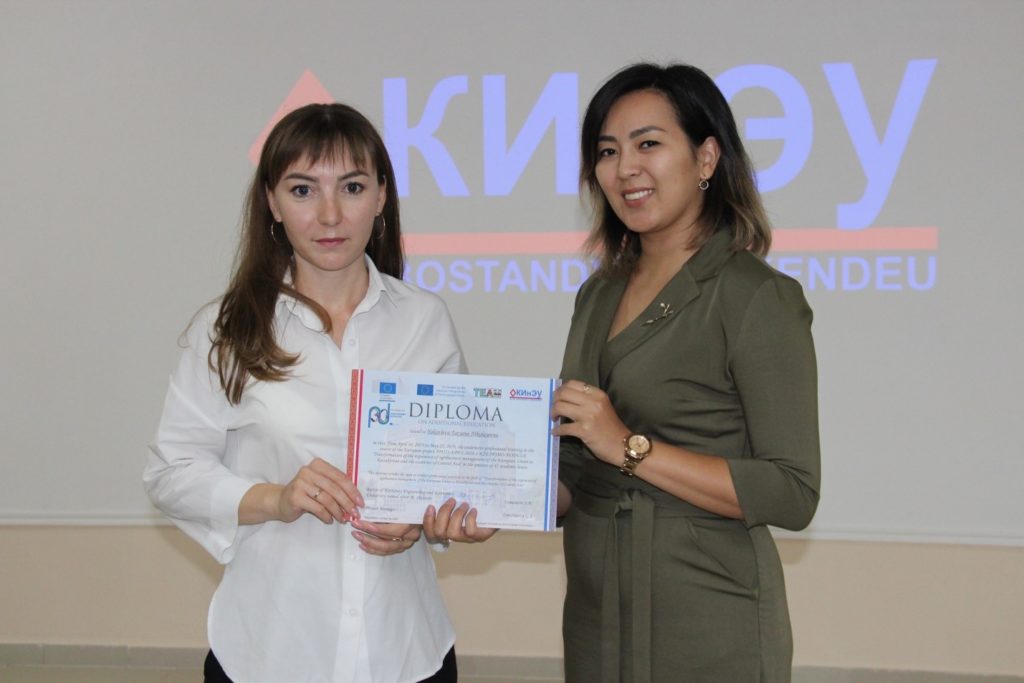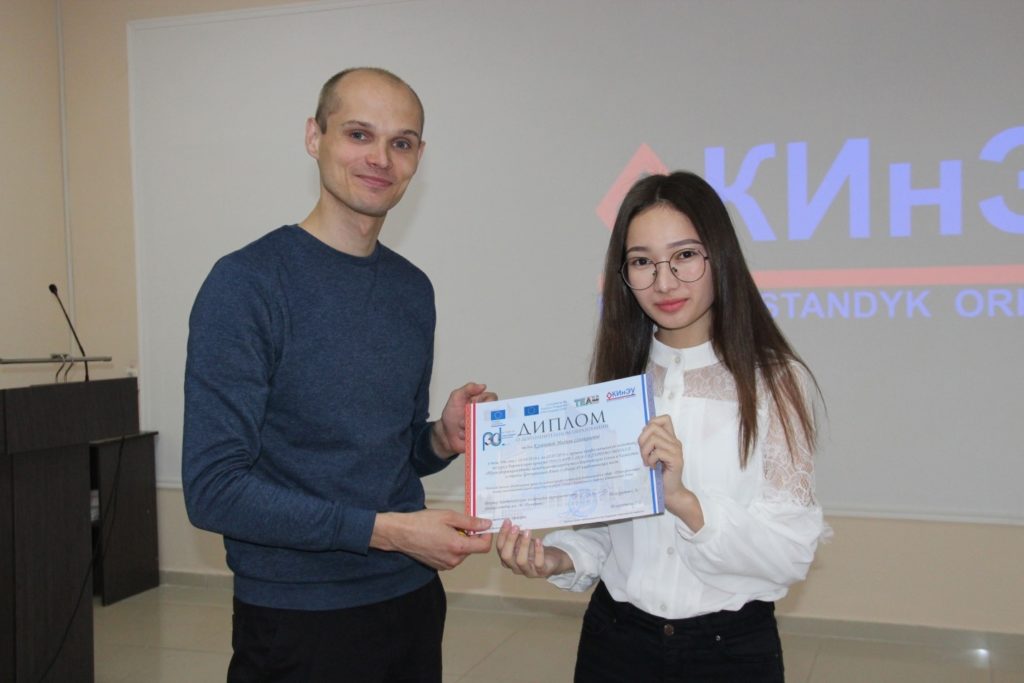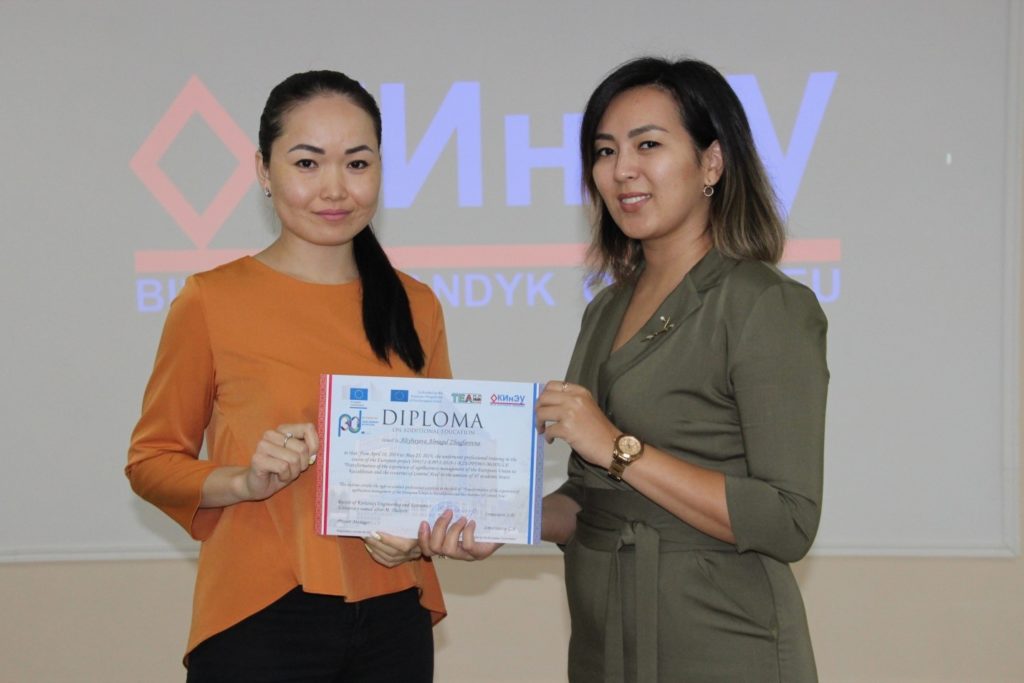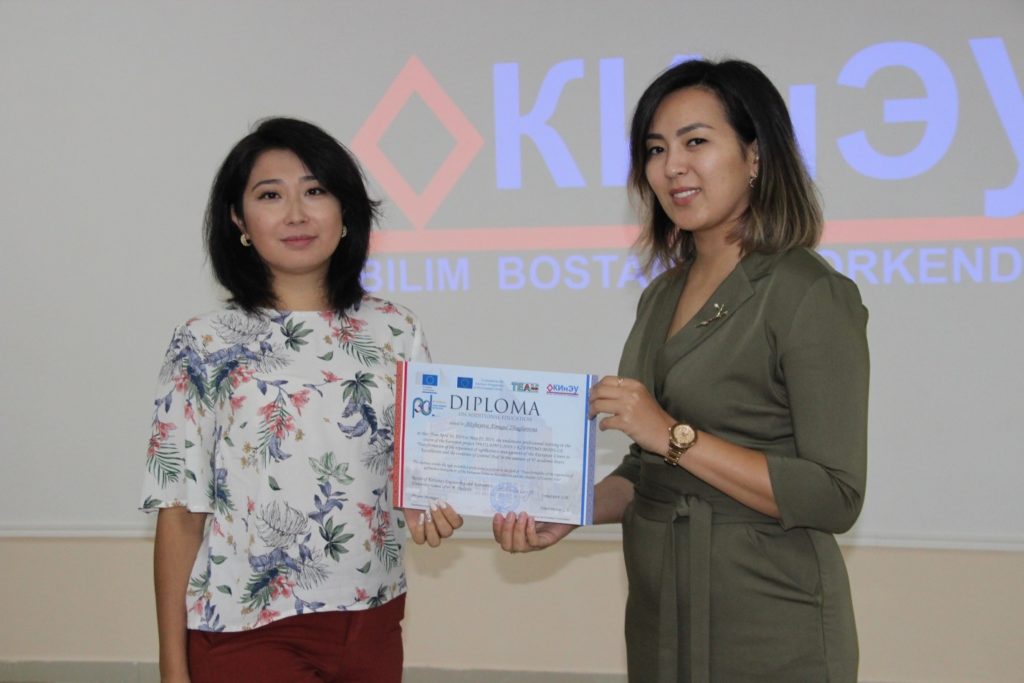From April 22 to May 15, 2019, under the motto “30th anniversary of Jean Monnet” for students of KEEU and others who wish to held open lectures and seminars using virtual classrooms Adobe Connect. It is a web conferencing platform that provides collaboration including video, audio, screen sharing, surveys, chat, questions and answers, document sharing and more. Schedule of classes it was posted on the educational portal of the University. During this period, the participants of the working group of the project, professors and teachers of the University, read 45 hours of lecture material and conducted seminars in the amount of 42 hours, total hours of classes was 87 hours. The policy of course:
The student must:
– regularly attend all types of classes (lectures, workshops, seminars);
– to carry out independent work of the student (SRO) in the set volume and the established terms, with use of the recommended educational and methodical literature or other sources in reading halls and Internet halls of library Kineu and others;
– strictly observe the schedule of delivery of written works of the student in a given volume;
– personally attend the rating and final controls.
Incomplete written work does not count. Work at the request of the teacher can be done in electronic form.
Consultations are held in accordance with the approved schedule. Rating and total control of students ‘ knowledge is carried out according to the approved schedule of the educational process of the educational institution.
Interaction between student and teacher is based on mutual respect and goodwill. Students in communication with each other comply with the requirements of etiquette.
The student should systematically prepare for classes and perform all tasks of Students’ Individual Work, the study of the course should be conscientious and active.
The student should come prepared for lectures and practical (seminar-skim) classes. Preparation for classes is verified by theoretical admission through terminological dictation, Express works, test and oral interviews.
The student should not miss classes without good reason. When skipping practical training, the student must necessarily work them out in a timely manner. Control and evaluation of educational achievements of the student is carried out in accordance with the requirements of the credit system of training, which involves the current, boundary and final control, which are evaluated in points.
During this period, the number of students amounted to 56 people, at the end of the training process, students were issued diplomas confirming the acquisition of skills and knowledge on the new official educational course “Transformation of the experience of agribusiness management of the European Union in Kazakhstan and Central Asia” (link to the photo of the issuance of diplomas).




To implement the project proposal, the methodology of interdisciplinary training was defined – the use of knowledge from different fields, their grouping and concentration in the context of the problem to be solved. Project activities are carried out in an interdisciplinary format with the study of the topic from the economic, agricultural, political and technological points of view. The application of this technique is based on modern conditions of successful agribusiness.
The range of professional knowledge of modern agribusiness specialists goes far beyond the agricultural economy. It is also determined by the tasks of state regulation of business in the field of production, processing of agricultural raw materials, storage, transportation and sale of finished products, environmental problems.
In modern conditions for the development and preservation of competitiveness in agribusiness requires the ability to quickly identify effective ways to adapt to external problems and use modern technological opportunities for development. The world economy is developing and changing dynamically. To remain successful, you need to be able to quickly determine the best way to solve the problem in any given situation. These parameters were taken into account in the formation of lectures and seminars.
Opening of the KEnEU academic week as part of the CASCADE EMIS 19.10.2020
Recording of lectures and practical lessons as part of the CASCADE EMIS